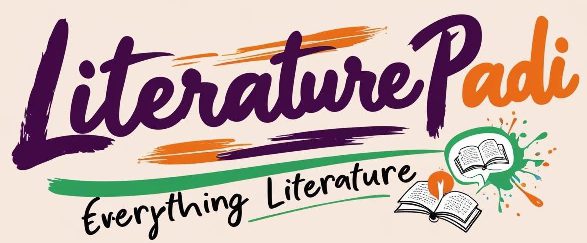📢 Follow our WhatsApp Channel for the latest literary updates!
It’s no news that Ngugi wa Thiong’o is one of Africa’s foremost socialist writers of his era. For me, he is my personal best or what you can call favourite. His works which notably espouses social realism often question neocolonialism, evils of capitalism and individualism, exploitation, class discrimination and several ills rife in our society.
Ngugi wa Thiong’o chastises the rich and the strong while he sympathises with the poor and the weak. His works subtly attack the rebranded colonialism that comes in form of independence. Some of his exemplary works include Weep not Child, Petals of Blood, Wizard of the Crow, The River Between, Trial of Dedan Kimathi, Grain of Wheat, I Will Marry When I Want, and of course the text of discourse here, Devil on the Cross.
Here listed are notable quotes from Ngugi wa Thiong’o’s Devil on the Cross which not only summarise the conviction of the author but also project the plight of the suffering masses in early post-independence days in Kenya and by extension, the Africa at large. Read, reflect and enjoy!
(1) The old man told me first of a peasant farmer who used to carry an ogre
on his back. The ogre had sunk his long nails into the neck and shoulders of
the peasant. The peasant was the one who went to the fields to get food, the
one who went into the valleys to fetch water, the one who went to the forest to
get firewood and the one who did the cooking. The ogre’s job was to eat and
thereafter to sleep soundly on the back of the peasant. As the peasant became
progressively thinner and more depressed at heart, the ogre prospered and
flourished, to the extent of being inspired to sing hymns that exhorted the
peasant to endure his lot on Earth with fortitude, for he would later find his
rest in Heaven. One day, the peasant went to a diviner. The diviner told him
that the only solution was for the peasant to boil some oil and to pour it on to
the nails of the ogre when he was fast asleep. The peasant said: ‘What if I
should burn my neck and shoulders?’ The diviner said: ‘Nothing good was
ever born of perfect conditions. Go home.’ The peasant was saved from
certain death only when he did what he had been advised to do by the diviner.
(2) There are two types of human being in every country: the manager
and the managed, the one who grabs and the one who hopes for leftovers, the
man who gives and the man who waits to receive.
(3) Life is the circulation of the
blood; death is the blood clogged in the veins. Life is the heart beating; death
is the heart stilled.
(4) ‘Father, how can I eat food snatched from the mouths
of the hungry? How can I drink water stolen from those who are thirsty?’
(5) Many of the pictures showed
Jesus in the arms of the Virgin Mary or on the Cross. But others depicted the
Devil, with two cowlike horns and a tail like a monkey’s, raising one leg in a
dance of evil, while his angels, armed with burning pitchforks, turned over
human beings on a bonfire. The Virgin Mary, Jesus and God’s angels were
white, like Europeans, but the Devil and his angels were black.
(6) What could a human being call his own in this
world if he could not end his life when he felt that it was too much of a
burden?
(7) men meet in battle to test one another’s mettle in order to resolve
all doubts about who is who.
(8) The people now gathered outside the cave, expecting speeches and guidance
from their leaders. Mũturi wa Kahonia Maithori was the first to speak.
“Friends—or perhaps I should call you clansmen, for we who are gathered
here now belong to one clan: the clan of workers—I think all of us saw the
incredible spectacle of those who have bellies that never bear children come
to scorn us. Those bellies are not swollen by disease. They have been fattened
by the fruit of our sweat and blood. Those bellies are barren, and their owners
are barren. What about us, the workers? We build houses; others occupy
them; and we, the builders, are left out in the rain. We make clothes; others
take them, and dress well; and we the tailors go naked. We grow food; others
eat it; and we, the farmers, sleep with our stomachs growling through the
night. Look here. We build good schools; other people’s children find places
in them, and ours go looking for food in rubbish heaps and in dustbins. Today
we are taking a stand. Today, here, we refuse to go on being the pot that cooks
but never tastes the food.”
(9) “The Beatitudes of the rich and the imperialists go like this:
Blessed is he who bites and soothes,
Because he will never be found out.
Blessed is the man who burns down another man’s house
And in the morning joins him in grief,
For he shall be called merciful.
Blessed is the man who robs another of five shillings
And then gives him back half a shilling for salt,
For he shall be called generous.
As for the man who bites and doesn’t know how to soothe,
And the one who steals from the masses
And does not attempt to deceive them with honeyed words,
Woe unto him!
For should the masses ever awaken,
Such people will see through their arses,
And may even pass on their disease to us,
Who have been able to disguise our wicked deeds
With the religious robes of hypocrisy.
“The workers’ catechism goes like this:
I believe that we, the workers, are of one clan,
And hence we should not allow ourselves
To be divided by religion, color or tribe.
I believe that in the organization of the workers
Lies our strength,
For those who are organized never lose their way,
And those who are not organized are scattered by the sound of one bullet.
I therefore believe in the unity of the workers,
Because unity is our strength.
I believe that imperialism and its local representatives are the enemies of the progress of the
workers and peasants and of the whole nation.
I therefore vow always to struggle against neocolonialism,
For neocolonialism is the last vicious kick of a dying imperialism.”
(10) Your skin has a depth of blackness that is softer and more tender
than the most expensive perfume oil. Your dark eyes shine more brightly than
the stars at night. Your cheeks are like two fruits riper than the blackberry.
Your hair is so black and soft and smooth that all men feel like sheltering
from the sun in its shade. Your voice is sweeter than the sound of a thousand
and one musical instruments. Warĩĩnga, my love, you are the music of my
soul.
(11) “What is it? What is it, Warĩĩnga?” Gatuĩria asked.
“There kneels a jigger, a louse, a weevil, a flea, a bedbug! He is mistletoe, a
parasite that lives on the trees of other people’s lives!”
(12) Warĩĩnga left the room. People gave way before her. Outside the door she met
Kĩhaahu wa Gatheeca and Gĩtutu wa Gataangũrũ. And suddenly,
remembering Wangarĩ and Mũturi and the student leader—the people who
had roused her from mental slavery—she felt an anger she had not felt as she
killed Gĩtahi.
“You too, and you!” And she shot at both Kĩhaahu and Gĩtutu, splintering
their kneecaps.
People scattered in every direction, some shouting, “Arrest her! Catch her!
She is mad!” as they ran for their lives.
Two people who tried to capture her were greeted by judo kicks and karate
chops, and they were felled. Warĩĩnga calmly walked away, as the people watched her from a safe distance”
Join Our Social Media Channels:
- WhatsApp: Literature PADI
- Telegram: Literature PADI
- YouTube: @literaturepadi
- Facebook: Literature PADI











